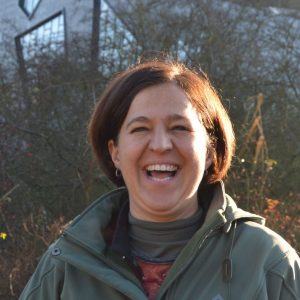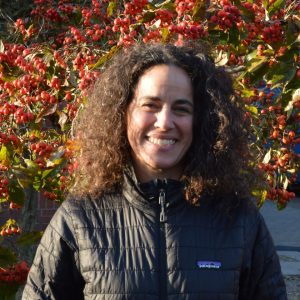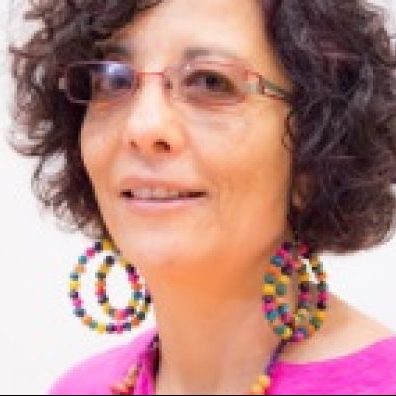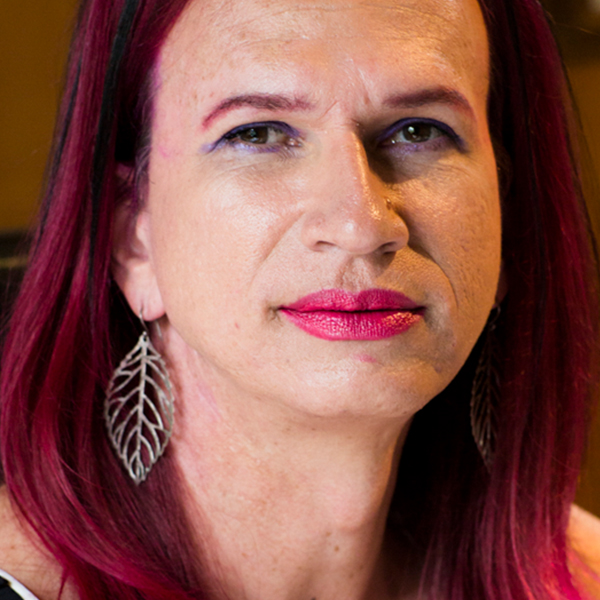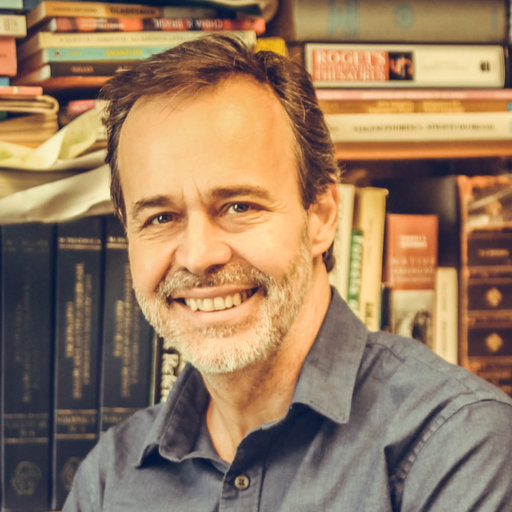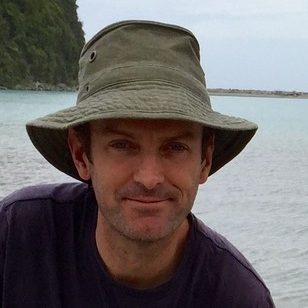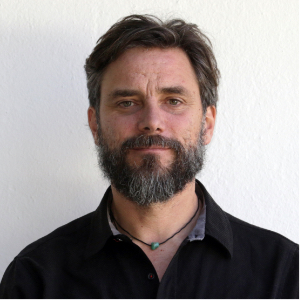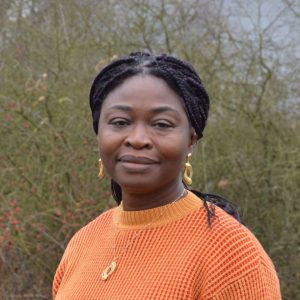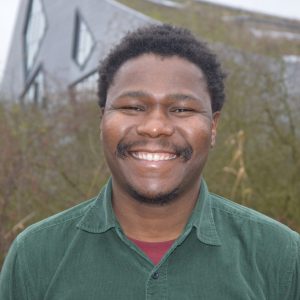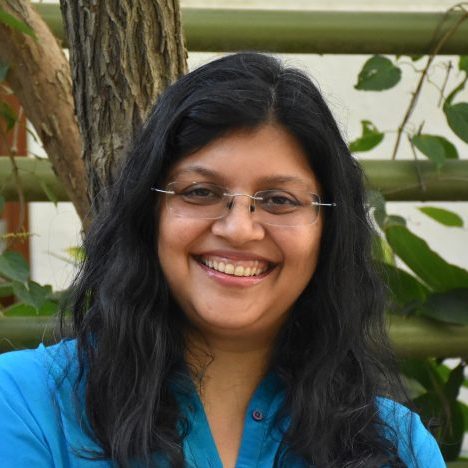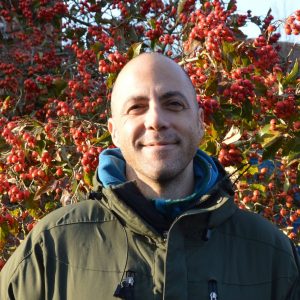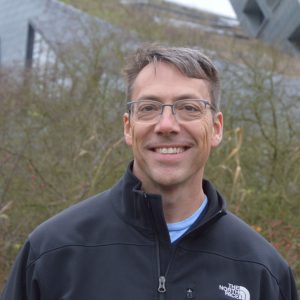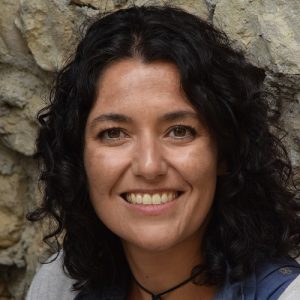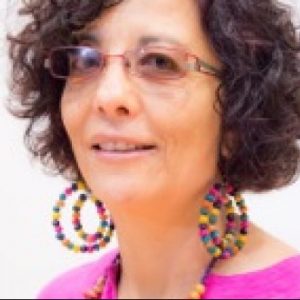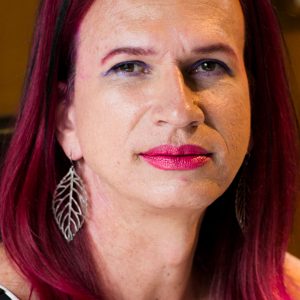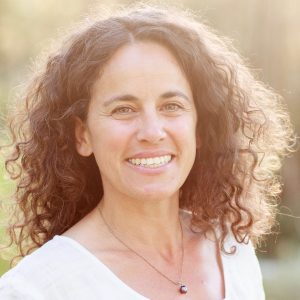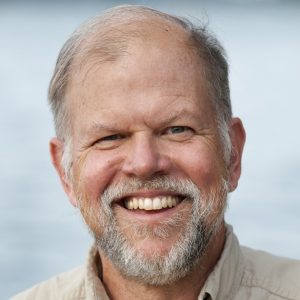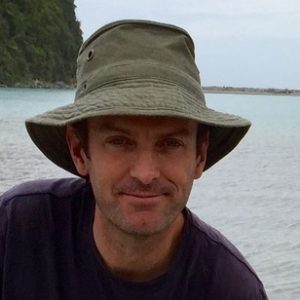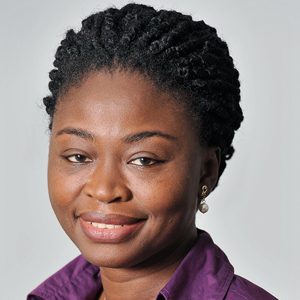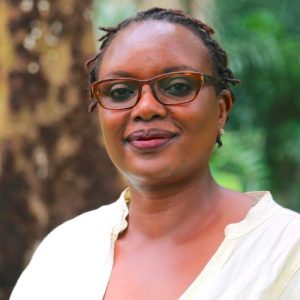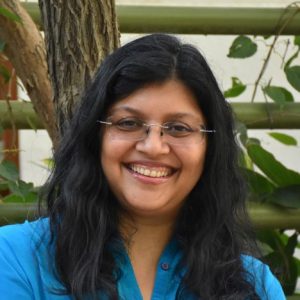Scientific Committee
PECS activities are guided by the PECS Scientific Committee (PECS-SC), which is appointed jointly by the International Council for Science (ICSU) and the United Nations Educational, Scientific and Cultural Organization (UNESCO). In performing these functions, the Scientific Committee will be supported by an International Programme Office, which is hosted by the Stockholm Resilience Centre (SRC).
The PECS-SC consists of a Chair and 12 additional members that are appointed for a period of three years, renewable once. In addition each sponsor, and the Scientific Committee for DIVERSITAS, have representatives serving as ex-officio members.
MEMBERS:
Scientific Committee
Reinette (Oonsie) Biggs
PECS-SC Chair
Email: oonsie.biggs@su.se
Centre for Complex Systems in Transition, Stellenbosch University, South Africa
Stockholm Resilience Centre, Stockholm University, Sweden
Profile
Dr Reinette (Oonsie) Biggs holds a South African Research Chair in Social-Ecological Systems and Resilience at the School of Public Leadership at Stellenbosch University, and is also affiliated with the Stockholm Resilience Centre in Sweden. Her research aims to advance theory and understanding of complex, intertwined social-ecological systems, specifically how to build resilience to deal with uncertainty, surprise and ongoing environmental and social change. A specific focus of her research is on regime shifts — large, abrupt, long-lasting changes in social-ecological systems that can have dramatic impacts on human economies and societies (see www.regimeshifts.org). Dr Biggs also coordinates the Southern African Program on Ecosystem Change and Society (SAPECS), a network of researchers and practitioners working on social-ecological systems in the southern African region (see www.sapecs.org).
Projects
Relevant Links and Info
www.regimeshifts.org
www.sapecs.org
www.goodanthropocenes.net
Scientific Committee
Berta Martín-López
PECS-SC member
Leuphana University of Lüneburg, Faculty of Sustainability, Social-Ecological Systems Institute
Profile
Berta Martín-López is assistant professor at the Leuphana University of Lüneburg, Faculty of Sustainability in Germany. Her research interests focus on analyzing the dynamics of social-ecological systems at different spatial scales (from local to global). On the one hand, she aims to assess ecosystem services from and interdisciplinary approach that includes the ecological, socio-cultural and economic dimensions. In addition, she is particularly focused on the institutional analysis of biodiversity and ecosystem services, in which her research aims to elucidate the role of informal institutions, local ecological knowledge and gender in the governance system.
Her papers have been published in Conservation Biology, Biological Conservation, Ecological Applications, BioScience, PLoS ONE, Environmental Science & Policy, Ecological Economics, Ecology & Society and other journals. She has been involved as lead author in the Millennium Ecosystem Assessment of Spain (www.ecomilenio.es) and as main author in the The Economics of Ecosystems & Biodiversity (www.teebweb.org).
She is a member of the scientific committee of PECS and EcoServices, and she is member of the VESPLAN network (Vulnerability, Ecosystem Services and Rural Territorial Management in Latin America) and of the working groups ‘Biodiversity and Ecosystems Functioning’ and ‘Mediterranean Climate Ecosystems’ within the Ecosystem Service Partnership (ESP) network.
Projects
Relevant Links and Info
Scientific Committee
Patricia Balvanera
PECS-SC member
Centro de Investigaciones en Ecosistemas, Universidad Nacional Autonoma de Mexico, Mexico
Profile
Dr. Patricia Balvanera is a professor at the National University of Mexico. Her work aims to understand the links between biodiversity and human well-being. Her research has explored the role of biodiversity in regulating the supply of ecosystem services. Her team has contributed to tools for assessing the spatial patterns of ecosystem service supply.
Dr. Balvanera has been exploring how management modifies the way biodiversity is maintained and the ability of ecosystems to supply a suite of services to society. Her work includes the analysis of the different ecological and societal conditions that modify the way people manage ecosystems and how this leads to different sets of tradeoffs among ecosystem services. She has also been exploring how to account for the role of culture and intangible dimensions of well-being into management and policy design. Her research encompasses field work in a managed tropical dry landscape, analyses of spatially explicit information at regional to global scales, development of conceptual and methodological frameworks and meta-analyses of published data. Her work draws from a background in basic and applied ecology as well as from a large network of collaborators in ecology, social anthropology, political sciences, economy and philosophy.
She is member of the scientific committee of PECS, GEO-BON-Ecosystem Services, and the Mexican Ecosistemas network. She is associate editor of Ecosystem Services, Ecology and Society, Journal of Plant Ecology and the International Journal of Biodiversity Science, Ecosystem Services & Management. She is a member of the Aldo Leopold Leadership Program.
Projects
Relevant Links and Info
Scientific Committee
Brigitte Baptiste
PECS-SC member
brigittebaptiste@humboldt.org.co
Instituto de Investigación de Recursos Biológicos, Alexander von Humboldt, Bogotá, Colombia
Profile
Colombian Biologist with an early experience in Amazon river fish ecology, I got a MA in Latin American Studies at UF (USA) studying forest management by Andean peasants, then worked for a few years with rural development programs, in charge of environmental issues, focusing on biodiversity and landscape management. By 1995 started working at Instituto Humboldt, the newest organization created by Colombia to implement CBD agreements and other national goals. By 2000 moved a while to Universidad Autónoma de Barcelona to get additional postgraduate studies in Environmental Economics and went back to teach and do research as Landscape Ecologist in the Faculty of Environmental and Rural Studies at Universidad Javeriana in Bogotá. From 2009 I was invited to be Research Subdirector of Humboldt Institute, and from 2011 was appointed as its General Director, my current position
Projects
Relevant Links and Info
www.ipbes.net
Scientific Committee
Elena Bennett
PECS-SC Chair
Department of Natural Resource Sciences and the McGill School of Environment, McGill University
Profile
Dr. Elena Bennett is an Associate Professor in the Department of Natural Resource Sciences and the McGill School of Environment. She received her BA in Biology and Environmental Studies from Oberlin College in Ohio in 1994, earned her MSc in Land Resources in 1999 (U. Wisconsin) and her PhD in Limnology and Marine Sciences in 2002 (U. Wisconsin). Her work focuses on ecosystem services, especially on the interactions among ecosystem services and how we can manage these interactions for more multifunctional working landscapes. She was the leader of the Montérégie Connection project that aimed to work with stakeholders to understand the role of landscape connectivity in the provision of about a dozen ecosystem services and how those might change across a range of future scenarios. She also works on understanding human impacts on large scale cycling of phosphorus, a key nutrient for agriculture and pollutant in aquatic ecosystems. And her most recent work focuses on using radical transformative experiments in society as ‘seeds’ to help tell better stories about how we might achieve a “good Anthropocene”. Dr. Bennett was a Leopold Leadership Fellow (2012), and was named a Trottier Public Policy Professor (2013-2014). She won the Macdonald Campus Award for (Undergraduate) Teaching Excellence in 2012 and the Carrie M. Derick Award for Excellence in Graduate Supervision in 2013. She was an EWR Steacie Fellow from 2017 until 2019.
Projects
Relevant Links and Info
Scientific Committee
Eduardo S. Brondizio
PECS-SC member
Department of Anthropology, Indiana University Bloomington
Profile
Eduardo S. Brondizio is Distinguished Professor of Anthropology, Department of Anthropology, Indiana University Bloomington, USA, which he chaired from 2005-2012, and directs the Center for the Analysis of Social-Ecological Landscapes (CASEL). Brondizio also holds faculty positions at the Environment and Society Program at the University of Campinas, and at the National Institute for Space Research, Brazil. Brondízio has been working in the Amazon for the past three decades, where he maintains a field-based research program focusing on the interactions between rural populations dynamics and landscape change, particularly household economy and demography, land use decisions, ethnoecological knowledge, institutional arrangements, cultural identity, and global market chains. For the past 10 years, this work has expanded to the study of on rural-urban networks, urban poverty and vulnerability to climate change, and the impact of expanding inter-urban networks and agricultural areas on the governance of indigenous and conservation areas. Brondizio has served on numerous international scientific boards in the Americas, Europe, and Asia including the Science Committee of the International Geosphere Biosphere Program (IGBP) (2011-2014), Future Earth program (2014-2018), UNESCO Sustainability Science initiative (2014-17), France’s Institut des Ameriques (2016-) and Center of Excellence for biodiversity research (2016), the Brazilian climate change research network, among others. Brondizio has contributed in leading roles to several global and regional assessments. Brondizio serves as Co-Editor-in-Chief of Current Opinion in Environmental Sustainability [Elsevier], and numerous editorial boards. He is currently the Co-Chair of the Global Assessment on Biodiversity and Ecosystem Services (2016-2019) of the Inter-governmental Platform on Biodiversity and Ecosystem Services (IPBES).
Projects
Relevant Links and Info
Scientific Committee
Stephen R. Carpenter
PECS-SC member
Center for Limnology, University of Wisconsin, USA
Profile
Stephen Russell (Steve) Carpenter is a leader of whole-ecosystem experiments and adaptive ecosystem management focused on freshwaters. Topics include trophic cascades and their effects on production and nutrient cycling, contaminant cycles, freshwater fisheries, eutrophication, nonpoint pollution, ecological economics of freshwater, and resilience of social-ecological systems.
Carpenter serves as the Director of the Center for Limnology at the University of Wisconsin-Madison, where he is the Stephen Alfred Forbes Professor of Zoology. He is a member of the U.S. National Academy of Sciences, a Fellow of the American Academy of Arts and Sciences, and a foreign member of the Royal Swedish Academy of Sciences. Carpenter is the 2011 laureate of the Stockholm Water Prize. His other notable awards include a Pew Fellowship in Conservation and Environment, the G. Evelyn Hutchinson Medal of the American Society of Limnology and Oceanography, the Robert H. MacArthur Award from the Ecological Society of America, the Excellence in Ecology Prize from the Ecology Institute, and the Naumann-Thienemann medal of the International Society for Limnology.
Carpenter is Chair of the Science Committee for the Program on Ecosystem Change and Society of the International Council of Science. He is co-Editor in Chief of Ecosystems, and a member of governing boards for the Beijer Institute of Ecological Economics and the South American Institute for Resilience and Sustainability Studies. From 2000-2005 he served as co-chair of the Scenarios Working Group of the Millennium Ecosystem Assessment. He led the North Temperate Lakes Long-Term Ecological Research program at U.W.-Madison from 1999-2009. He is a former President of the Ecological Society of America. Carpenter has published 5 books and more than 300 scientific papers, book chapters, reviewed reports and commentaries. He received a B.A. from Amherst College (1974), M.S. from University of Wisconsin-Madison (1976), and Ph.D. from U.W. Madison (1979). From 1979-1989 he served as Assistant and then Associate Professor at the University of Notre Dame. He joined the U.W.-Madison faculty in 1989. A full biographical sketch, publication list and contact information are posted on http://limnology.wisc.edu/personnel/carpenter/.
Projects
Relevant Links and Info
Center for Limnology at Uiversity of Wisconsion-Madison
South American Institute for Resilience and Sustainability Studies
Beijer Institute of Ecological Economics
Scientific Committee
Graeme Cumming
PECS-SC member
ARC Centre of Excellence for Coral Reef Studies, James Cook University
Profile
Prof. Graeme Cumming is currently based at the James Cook University node of the ARC Centre of Excellence for Coral Reef Studies, in Australia. He runs a far-ranging interdisciplinary research program that focuses on understanding spatial pattern-process-function relationships in the interactions between people and ecosystems. Graeme is originally from Zimbabwe, where he attended St. George’s College before completing an honours degree in Zoology and Entomology at Rhodes University (South Africa), a doctorate in Zoology at Oxford University (U.K.), and a postdoc at the Centre for Limnology at the University of Wisconsin-Madison (U.S.A.). A former Rhodes scholar and D.H. Smith fellow, Graeme worked as an assistant professor at the University of Florida (2001-2005) before becoming the inaugural Pola Pasvolsky Chair in Conservation Biology at the University of Cape Town (2006-2015). He lives with his family in an old wooden house near a very large coral reef.
Projects
Relevant Links and Info
Scientific Committee
Stefan Gelcich
PECS-SC member
Departamento de Ecología, Facultad de Ciencias Biológicas, Pontificia Universidad Católica de Chile, Casilla 114- D. Santiago, Chile
Profile
Stefan Gelcich studies the interaction between ecological and social systems in coastal areas, conservation and sustainable management of marine resources, subtidal ecology, and public policies aimed at managing natural resources. Gelcich is an assistant professor at the Pontificia Universidad Católica de Chile and a researcher with Chile’s Center of Applied Ecology and Sustainability, where he investigates the factors affecting the sustainable management and aquaculture of marine resources.. In addition, he serves as a regional counselor for Global Greengrants Fund, an environmental nonprofit that awards small grants to grassroots movements addressing environmental issues and was recently awarded a Pew Fellowship in Marine Conservation.
Gelcich earned a bachelor’s degree in marine biology at the Universidad Católica del Norte, a M.Phil. in environment and development at Cambridge University, and a Ph.D. in coastal resource management at the University of Wales, Bangor, in the United Kingdom.
Projects
Relevant Links and Info
Centro de conservación marina
Pew Fellowships in marine conservation
Scientific Committee
Chinwe Ifejika Speranza
PECS-SC member
chinwe.ifejika.speranza@giub.unibe.ch
Institute of Geography, University of Bern, Switzerland
Profile
Dr. Chinwe Ifejika Speranza is a Professor at the Department of Geography, University of Bonn and at the United Nations University Institute for Environment and Human Security (UNU-EHS), Bonn, Germany. Her teaching at Bonn is mainly on environmental risks and vulnerability. Her research focuses on natural resources-based livelihoods, their interactions with social and ecological systems and the implications for building resilience and sustainability. The general thematic areas of her research are climate risks, resilience, vulnerability, actor perspectives, food security and agriculture. Her geographic areas of focus are sub-Sahara Africa, Switzerland and Germany.
Prof. Ifejika Speranza is a Geographer with backgrounds in Climatology (BSc, Univ. of Nigeria, Nsukka, Nigeria), Remote sensing and Geographic Information Systems (MSc, Univ. of Zurich), and Human Geography (PhD, Univ. of Bern). She is a Senior Research Scientist at the Centre for Development and Environment (CDE), University of Bern, Switzerland. She has over 10 years’ experience in training Extension Officers in Kenya and Tanzania on drought and food security management, and is involved in science-policy activities. She is an associate fellow at the German Development Institute, Bonn, and a visiting Professor at the Department of Geography and Environmental Studies of the University of Nairobi, Kenya. She is an editorial board member of Regional Environmental Change.
Projects
Relevant Links and Info
Department of Geography, University of Bonn
Centre for Development and Environment, University of Bern, Switzerland
Scientific Committee
Esther Mwangi
PECS-SC member
Centre for International Forestry Research
Profile
Dr Esther Mwangi is a Principal Scientist with Forests and Governance at the Center for International Forestry Research (CIFOR). She is also the Team Leader of CIFOR’s Nairobi Hub. Esther’s main research interests are tenure/property rights, gender and governance more generally. She has worked on questions how tenure reform implementation affects the tenure security of local communities as well as forest conservation, how to strengthen women’s rights in strong, patriarchal societies and on how to take into account governance and institutional issues in resource monitoring programs that require data sharing. She is currently working on how to reduce fragmentation and foster joint forest and water governance among Community Forest Associations and Water Resource Users Associations (Kenya, Uganda); critical factors for successful community based forest landscape restoration (Kenya); and mangrove governance (East and West Africa). Achieving gender equity and fostering tenure security for local resource users are key concerns of her work. Esther’s work has spanned all three continents including Kenya, Uganda, Tanzania, Indonesia, Nepal, Peru and Nicaragua. A citizen of Kenya, Esther has a Bachelor’s degree in education (botany, zoology) from Kenyatta University, a Master of Philosophy in environmental studies from Moi University and a PhD in public policy from Indiana University, Bloomington.
Projects
Relevant Links and Info
Scientific Committee
Harini Nagendra
PECS-SC member
Azim Premji University, Bangalore, India
Profile
Dr. Harini Nagendra is a Professor in Sustainability at Azim Premji University, Bangalore, India. Her research examines the factors impacting the transformation of biodiversity and ecosystem services in diverse social-ecological settings. Her field sites are located across a gradient from forested to urban landscapes in South Asia, with additional research in South America, East Africa and the Mediterranean, and on cross-continental datasets. She uses an interdisciplinary approach, combining satellite remote sensing and landscape ecology, with biodiversity plots, social interviews, and policy analyses to examine the interface between social and ecological drivers and outcomes of change.
Prof. Nagendra obtained her Ph.D. in Ecology in 1998 from the Indian Institute of Science, Bangalore. She is an editorial board member of Animal Ecology, Ecology and Society, LAND, and Regional Environmental Change. Her recent awards include the 2013 Elinor Ostrom Senior Scholar Award for Collective Governance of the Commons, and the 2007 Cozzarelli Prize for best paper in the Sustainability section in PNAS (co-authored with Ostrom). She is a Scientific Committee Member for PECS, DIVERSITAS, and the Global Land Project, and a lead author for the IPCC Annual Report 5 – Working Group III.
Projects
Relevant Links and Info
Ashoka Trust for Research in Ecology and the Environment (ATREE)
Global Land Project
Scientific Committee
Albert Norström
PECS-SC member
albert.norstrom@su.se, Twitter: @AlbertNorstrm
Stockholm Resilience Centre,Stockholm University, Sweden
Profile
Albert is the Head of Knowledge and Evidence of the Global Resilience Partnership (GRP). He leads GRPs work to advance the understanding & knowledge about resilience. Between 2012-2018 he served as Executive Director of PECS. Following that he served as Deputy Director of the “Guidance for Resilience in the Anthropocene: Investments for Development” (GRAID) programme, which was hosted by the Stockholm Resilience Centre and funded by the Swedish International Development Cooperation Agency (Sida). Alberts research focus is broad, and involves: i) work on the resilience of marine social-ecological systems, ii) identifying weak signals of positive change in the Anthropocene that can underpin futures that are desirable, just and sustainable, and iii) developing evidence-based frameworks to improve and operationalize knowledge co-production in sustainability research.
Current projects
1. Assessing and predicting regional coral reef resilience in the Hawaiian archipelago.
This project will, for the first time, quantitatively assess the regional resilience of a marine ecosystem, the Hawaiian archipelago, across distinct gradients of human impact. The analyses will be generated from one of the most comprehensive and extensive coral reef datasets available and will provide novel insights into the multi-scale dynamics of reef resilience and regime shifts. It will also produce dynamic models that will help understand the future impacts of climate change and direct human impacts on these critical marine ecosystems. The project builds on existing long-term collaborations between research partners with deep and diverse experience in developing theory, tools and empirical studies of coral reef resilience and dynamics. A long-term objective of this project, which extends beyond this application, is to use our findings as a blueprint for resilience assessments across different marine ecosystems. This will be ensured through the integration of the project to several of the most prominent networks on resilience and marine ecosystem dynamics including The Resilience Alliance, the ICSU Program on Ecosystem Change and Society (PECS) and the Ocean Tipping Points program
2. SEEN The broad scientific aim of this project is to explore the dynamics that contribute to the reliable production of ecosystem services in social-ecological systems (i.e. interdependent and linked complex systems of people and nature). We will assess the patterns of trade-offs and synergies among 6-12 key ecosystem services within local municipalities (kommuner) in the Norrström drainage basin and then identify the social, ecological and geographic drivers of ecosystem service change across the study region. We will generate novel policy-and-practice relevant knowledge on ecosystem service governance in the region, and establish how historical and current governance arrangements affect the provision and deterioration of ecosystem services as well as access to these services in practice. Finally, we will prepare a regional Resilience Assessment of ecosystem services across the Norrström region through participatory engagement with relevant stakeholders – e.g. through the Stockholm metropolitan region strategic spatial planning process. This will ensure the results of the project are connected to an appropriate decision making context and facilitate the operationalization of the ecosystem service concept in the region.
3. REPICORE combines social and natural sciences for an integrated assessment to achieve a more holistic understanding of coupled social-ecological systems. Marine resource use and coastal livelihoods are examined across three Melanesian countries in conjunction with field assessments of reef fish and benthic communities. This is combined with meta-analyses of reef fish community and associated socio-economic data and an assessment of marine governance structures in the region. The overall aim is an improved understanding of social-ecological feedbacks that erode or strengthen resilience. The project brings together leading international experts on social-ecological resilience assessment, and links up with institutions in the Pacific Islands. The project aims to link outcomes to regional decision makers via science-to-policy workshops and policy briefs.
Projects
Relevant Links and Info
Social-ecological dynamics of ecosystem services in the Norrström basin (SEEN)
Ocean Tipping Points
Scientific Committee
Michael Schoon
PECS-SC member
School of Sustainability, Arizona State University
Profile
Dr. Michael Schoon is an associate professor in the School of Sustainability at Arizona State University. His transdisciplinary research focus is on collaboration in response to environmental dilemmas and how people resolve collective action problems that they face. In engaging on these challenges, Mike emphasizes institutional design and governance structure. His projects have ranged from transboundary biodiversity conservation to management of wild horses to water management working to combine research and practitioner communities.
Projects
Relevant Links and Info
Programme Office
Odirilwe Selomane
PECS-SC member, former Director
Email: odirilwe.selomane@up.ac.za
University of Pretoria Pretoria, South Africa
Profile
Dr Odirilwe Selomane is a researcher at the University of Pretoria. His research focuses on using primarily existing data to measure, quantify and monitor social-ecological systems and dynamics within them. He is interested in understanding how societies benefits from using ecosystems, how this changes overtime, and how to better account for blind spots in monitoring these changes. He is currently also starting to explore how faraway places could have impacts on local conditions through processes such as trade – using the telecoupling framework. He currently co-leads the South African component of an 18 country project as part of the Food, Agriculture, Biodiversity, Land-Use, and Energy (FABLE) consortium. The projects aims to understand how countries can transition towards sustainable land-use and food systems.
He was recently involved in the Global Assessment of the Intergovernmental Science-Policy Platform on Biodiversity and Ecosystem Services (IPBES) as a fellow, and was a contributing author in the Global Environmental Outlook 6 report (GEO-6). He is a co-coordinator of the Ecosystem Services Working Group of Group on Earth Observation Biodiversity Observation Network (GEOBON), is a committee member of the Ecosystem Services Partnership (ESP), and a member of the Balaton Group as a Donella Meadows Fellow.

